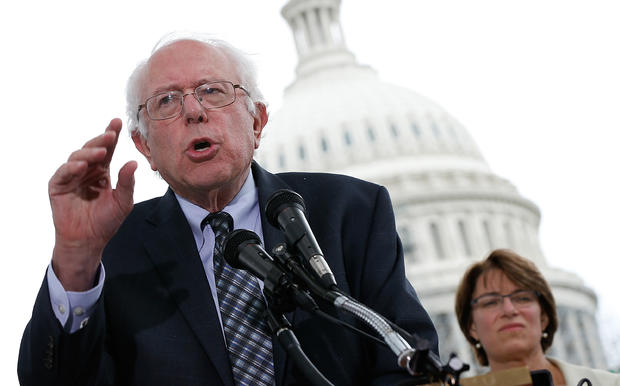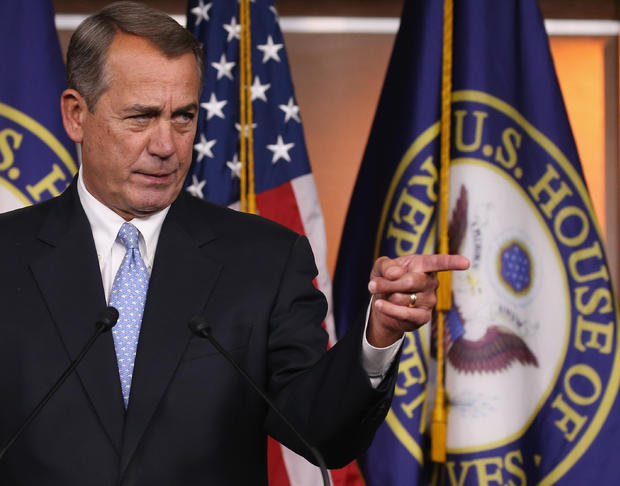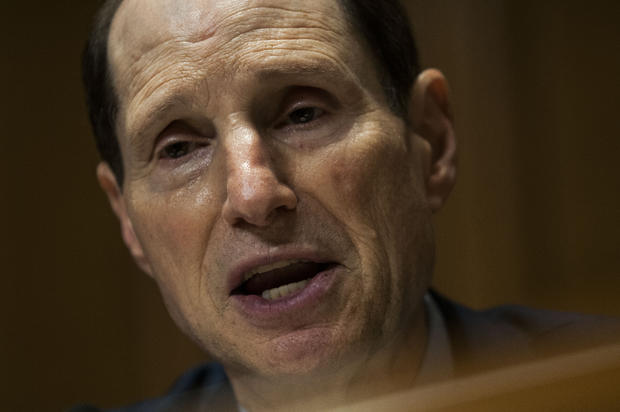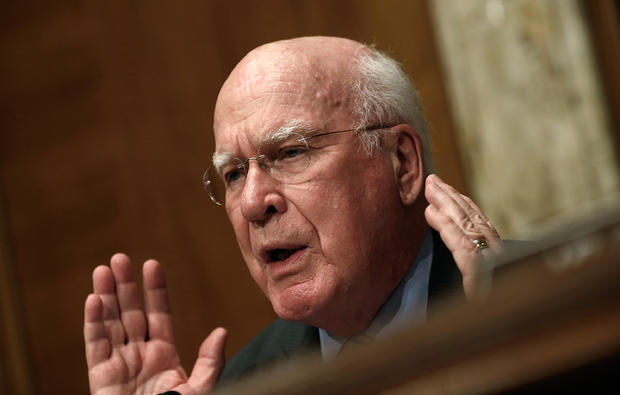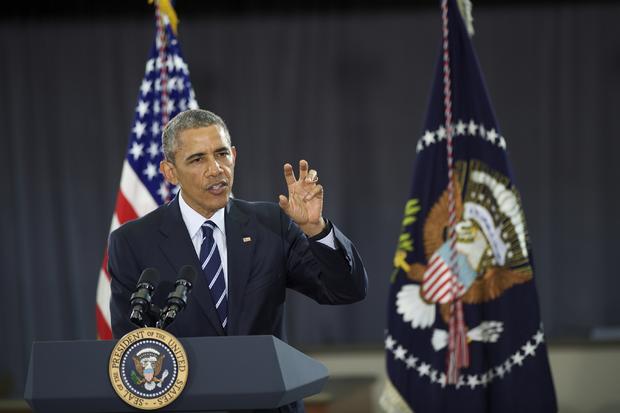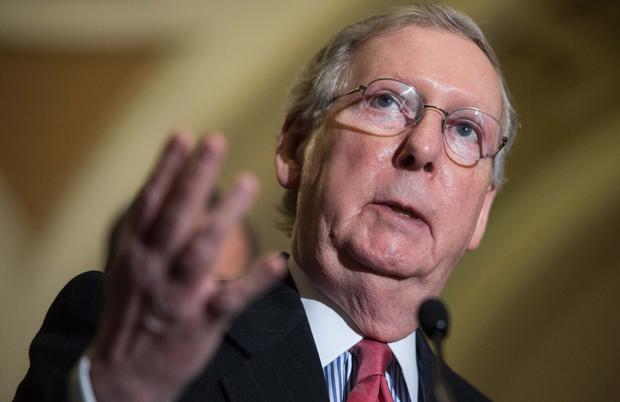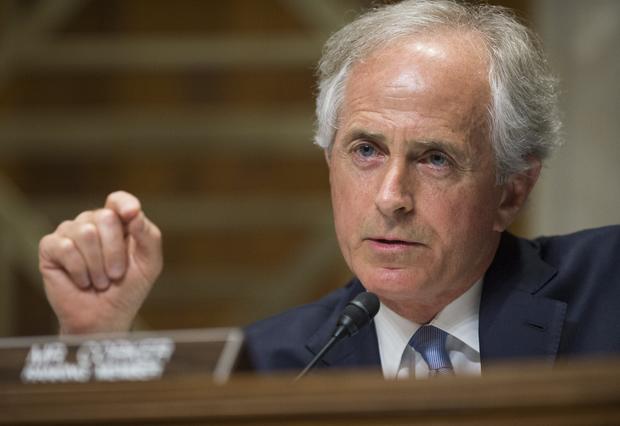The tussle over NSA snooping explained: Where everybody stands
The congressional debate over one of the National Security Agency's sweeping surveillance programs has come down to the wire, in part because of the unusual alliances the controversial issue has created.
Libertarians and socialists have aligned, while hawkish conservatives in the Senate are at odds withtea partyconservatives in the House. A large compromise group has formed among Democrats and Republicans from both the House and the Senate. Meanwhile, Congress is hearing from unexpected grassroots coalitions, like a partnership between the ACLU and the Tea Party Patriots.
The debate is specifically over the NSA's bulk phone records collection program. It was recently deemed illegal by a federal court, but its authorization stems from Section 215 of the Patriot Act -- a provision that's set to expire on June 1. The House last week passed a bill called the USA Freedom Act, which would put an end to the government's bulk collection of phone records. However, it would still let the government access records from the phone companies, which would be obligated to hold onto those records.
The Senate is trying to figure out how to proceed before it takes off for a weeklong recess -- leaving little time to act before the June 1 expiration date. It could pass the USA Freedom Act, it could pass a clean extension of Section 215, it could pass a short-term extension and prolong the debate, or it could just let Section 215 expire.
Here's a look at where the key players in the debate stand, starting with the most vocal opponents of the NSA's surveillance program and ending with those who think the NSA isn't spying enough.
ACLU and the tea party: Opposed to NSA program, opposed to USA Freedom Act
The NSA's surveillance programs have drawn bipartisan criticism since former government contractor Edward Snowden exposed them in 2013. Now that Congress is finally considering how to change them, activists from the left and the right are joining forces to urge lawmakers to make significant changes.
The ACLU and the Tea Party Patriots this week jointly sponsored an ad campaign running in Iowa, New Hampshire and Washington, D.C. to push for reform. The rather ominous ads say
the government has collected information about "your most private moments" and encourages viewers to tell lawmakers to "protect our privacy."
In an op-ed published in USA Today this week, Anthony Romero of the ACLU and Matt Kibbe of FreedomWorks (a tea party-aligned group) say the USA Freedom Act doesn't go far enough to curb abuses.
"While the bill would stop spy agencies from engaging in some of the most egregious forms of abuse -- such as collecting the information of an entire state, zip code, or service provider -- it would not stop them from demanding vast amounts of information about Americans who have no connection to terrorism," they wrote. "Moreover, there is no requirement that the government immediately delete information that is irrelevant, or that belongs to innocent people -- meaning those records could end up in intelligence databases for years."
Rand Paul: Opposed to NSA data collection, opposed to the USA Freedom Act (for now)
Sen. Rand Paul, R-Kentucky, believes the Section 215 program "goes against the spirit and the letter of the Fourth Amendment," as he explained at the Constitution Center in Philadelphia on Monday. It allows the NSA to rely on a "generalized warrant" to collect data about all Verizon customers, rather than a specific person.
He's opposed to the program so much, he staged a so-called filibuster on the Senate floor for more than 10 hours on Wednesday (there's debate about whether it was technically a filibuster, since the Senate was debating another issue at the time).
The libertarian-leaning Republican isn't a fan of the USA Freedom Act, either. His office confirmed to CBS News on Wednesday that he is not a supporter of the bill, though that is subject to change. At a Londonderry, New Hampshire town hall event earlier this month, Paul explained his concerns with the bill.
"I sued the NSA," he said. "I'm a leader in trying to stop this. My bill would end it, and not replace it. The USA Freedom Act ends it, but then replaces it with another program. My concern is whether or not they'll have individualized suspicion to get your records. USA Freedom says the government is not going to collect your records in Utah, but the government can get them from the phone company. I'm okay with the government getting them from the phone company if they have your name on the warrant. I'm not okay with them saying, we need everybody in Londonderry's stuff, so even though it's not being held in Utah, they can get in from the phone company."
Bernie Sanders: Opposed to NSA data collection, wary of the USA Freedom Act
Paul and Sen. Bernie Sanders, I-Vermont, are nearly on the opposite ends of the political spectrum, but their views converge on the issues of surveillance and civil rights.
Sanders' office told CBS News this week that the senator will wait and see how the final legislative language of the USA Freedom Act shakes out before deciding whether or not to support it.
There's no doubt, however, that he opposes the NSA's bulk collection of phone records. He voted against the surveillance law when it originally passed in 2001 in the aftermath of Sept. 11, he voted against its 2006 reauthorization, and he voted against its four-year extension in 2011.
"I believed then and am even more convinced today that the law gave the government far too much power to spy on Americans and that it provided too little oversight or disclosure," Sanders wrote in a Time op-ed.
He's proposed his own bill, the Restore Our Privacy Act, to amend the Patriot Act and require authorities to provide evidence of reasonable suspicion before getting court approval to monitor specific individuals.
Members of the House: Opposed to current NSA program, mostly in favor of USA Freedom Act
The House passed the USA Freedom Act by a vote of 338 to 88, showing a strong level of bipartisan support for the bill. If the Senate rejects the USA Freedom Act and sends another option back to the House, it's unclear where the debate would turn -- especially since the House is now in recess and isn't expected to reconvene before Section 215 expires. If the House does have to vote again -- most likely on a short-term extension of Section 215 -- they would have to convene a pro forma session, allowing the House to vote with near-zero attendance.
Democrats on the House Intelligence Committee on Wednesday issued a statement urging the Senate to pass the USA Freedom Act: "Democrats on the House Intelligence Committee worked in good faith with our Republican counterparts, in addition to the House Judiciary Committee, to come to a compromise that benefits everyone and makes real reforms," they wrote.
However, the bipartisan group opposed to the bill feel strongly about it as well. Libertarian-leaning Rep. Justin Amash, R-Michigan, liberal Rep. John Lewis, D-Georgia, and 58 of their House colleagues sent a letter to the Senate saying the USA Freedom Act doesn't go far enough.
"We must not kick the can down the road with a short-term reauthorization," they wrote. "Nor will we acquiesce to any effort to weaken this legislation. Indeed, there is strong support for real reform in this chamber, and we hope you will work with us to improve the legislation."
Ron Wyden: Opposed to current NSA program, backs USA Freedom Act but wants additional reforms
Sen. Ron Wyden, D-Oregon, a member of the Senate Intelligence Committee, has long opposed the NSA's surveillance programs. He voted against the 2006 Patriot Act reauthorization, and he joined Rand Paul in his "filibuster" on Wednesday.
When the House passed its version of the USA Freedom Act, Wyden called it "an important step for protecting the privacy of Americans."
He added, however, that he's working to pass additional reforms, such as a bill to end warrantless searches of Americans' personal electronic communications. That NSA program falls under Section 702 of the Foreign Intelligence Surveillance Act.
Leahy, Lee, Reid, and others: Support the USA Freedom Act
The USA Freedom Act has acquired a thoroughly politically diverse list of supporters in the Senate. Its list of 17 co-sponsors include liberal Democrats like Sens. Patrick Leahy of Vermont, Dick Durbin of Illinois and Al Franken of Minnesota, as well as conservative Republicans like Sens. Mike Lee of Utah, Ted Cruz of Texas and Dean Heller of Nevada.
Senate Minority Leader Harry Reid, D-Nevada, on Tuesday urged McConnell to take up the USA Freedom Act, saying that "extending an illegal program would be deeply irresponsible." Sen. Chuck Schumer, D-New York, called the USA Freedom Act a "lifeboat" to save the Senate from a surveillance program that's been ruled illegal.
Obama administration: Supports the USA Freedom Act
In a statement of official administration policy, the White House said earlier this month that the USA Freedom Act "strikes an appropriate balance between significant reform and preservation of important national security tools."
White House spokesman Eric Schultz also reiterated earlier this month that President Obama "believes we should end the 215 bulk telephony metadata program as it currently exists by creating an alternative mechanism to preserve the program's essential capabilities without the government holding the bulk data."
Hillary Clinton: Supports the USA Freedom Act
The former secretary of state and Democratic presidential contender has taken the same position as the Obama administration.
"Congress should move ahead now with the USA Freedom Act--a good step forward in ongoing efforts to protect our security & civil liberties," she wrote on Twitter earlier this month.
Clinton gave relatively vague remarks on her stance on NSA surveillance earlier this year at a Silicon Valley event: "The NSA has to act lawfully, and we as a country have to decide what the rules are and make it absolutely clear we will hold them accountable," she said.
McConnell, Rubio, Cotton, and others: Extend Section 215
While Senate Majority Leader Mitch McConnell has promised a vote on the USA Freedom Act, he would prefer to extend the NSA surveillance program as it exists. Last month, he introduced legislation to extend it through 2020, but he's more recently talked about passing a two-month extension to allow time for debate.
"This has been a very important part of our effort to defend the homeland since 9/11," McConnell said Sundayon ABC News. "I don't want us to go dark, in effect, and I'm afraid that the House-passed bill will basically be the end of the program, and we'll not be able to have yet another tool that we need to combat this terrorist threat from overseas."
McConnell is backed up by a group of other conservative senators, including Sen. Marco Rubio, R-Florida. The 2016 presidential candidate wrote in an op-ed earlier this month that given the existence of threats like U.S.-based ISIS sympathizers, "now is not the time to end this program, which remains essential to our security... We must renew these authorities and provide those we charge with protecting us every tool they need to do so."
This group could try to stymie efforts to pass the USA Freedom Act, as they've already demonstrated -- Sen. Tom Cotton, R-Arkansas, earlier this week blocked an attempt to start debate on the USA Freedom Act.
Jeb Bush: Supports program as it exists
While he's not a member of Congress, former Florida Gov. Jeb Bush has been sharing his opinion on a number of high-profile issues lately, as he gets closer to announcing his 2016 candidacy.
On Thursday, the potential candidate wholeheartedly defended the NSA's controversial surveillance programs while speaking with members of the Salem, New Hampshire Chamber of Commerce.
"I do know, because I've checked with a lot of people inside and outside of government, that there's no evidence, not a shred of evidence, that there's been a violation of civil liberties because of the Patriot Act," he said. "If you create that doubt, no wonder people want to take away one of the tools to keep us safe."
Last month, Bush said on a radio show that "the best part of the Obama administration would be his continuance of the protections of the homeland using, you know, the big metadata programs, the NSA being enhanced."
Corker: Current program doesn't go far enough
While many conservatives have voiced their support for the Section 215 program, at least one -- Sen. Bob Corker, R-Tennessee -- has gone a step further. At a Washington event last week, Corker said he's "shocked" that the NSA isn't collecting more phone data.
"I think there was an 'aha' moment yesterday for people on both sides of the aisle when they realized how little data is being collected," Corker said. He added that the Section 215 program "needs to be ramped up hugely," the Hill reports.
"The way it's being implemented today, I don't see how it's much useful at all to the American people, and I'm shocked again by the small amount of data," he said. "The program is not the program I thought it was, not even close."

